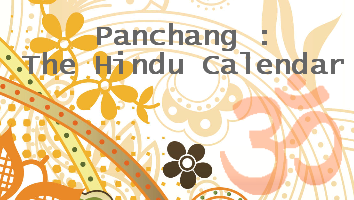![]()
The word Ugadi is derived from the sanskrit words "yuga" and "adi" meaning "beginning of the new age." It is also known as “Yugadi”, is celebrated as the first day of the year in March – April as per the Luni-Solar calendar. It is also the day when there is a change in the moon’s orbit. Ugadi is celebrated a day after the first new moon and after the sun crosses the celestial equator on the spring equinox.While several other states of India have their own local versions, names and dates of the New Year around this time, Ugadi is exclusively the name of the New Year celebrated in the states of Karnataka, Andhra Pradesh and Telangana.
Ugadi is a celebration of all the different flavors of life. On the day of Ugadi, people wear new clothes after taking a head bath before the break of dawn. The day begins with ritual oil-bath followed by prayers. Oil bath and eating Neem leaves are must rituals suggested by scriptures. There is a special dish called Ugadi Pachadi which is prepared only on this day as part of the celebration. This is made using seasonal ingredients such as raw mango, tamarind, jaggery, neem and also has salt and chilli. The six different ingredients signify the six varied flavors of life like sadness, happiness, anger, surprise, bitterness and fear. It is eaten on the day of Ugadi to remind ourselves that life is a mix of all these emotions and we should learn to accept it.
It is believed that Lord Brahma, the creator of the universe, started creation on this day - "Chaitra Suddha Padhyami" or the Ugadi day. Also the calculations of the great Indian Mathematician Bhaskaracharya proclaim the Ugadi day as the beginning of the New Year, New month and new day. The onset of spring also marks a beginning of new life with plants acquiring new life, shoots and leaves.
The Ugadi day is considered as lucky day to start any new things like, business, buying houses or vehicles. People pray for success in life along with health, wealth, happiness, and the recitation of the Panchanga, or forecast of the new year.


 Collection of Hindu Vrat and Upavas Kathas
Collection of Hindu Vrat and Upavas Kathas






